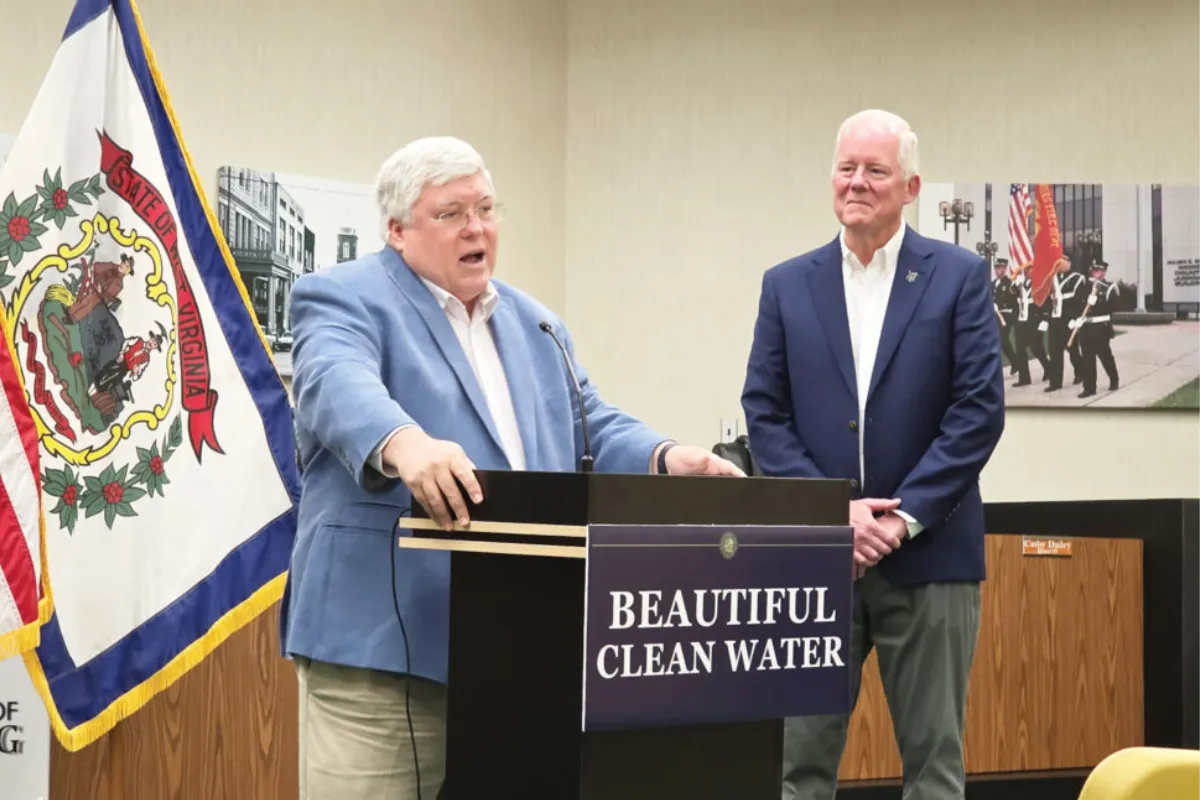West Virginia Governor Patrick Morrisey visited Parkersburg on Wednesday to announce more than $9 million in grants for critical water infrastructure projects in Wood and Tucker counties.
Speaking to nearly 20 local leaders and officials at the Parkersburg City Council chambers, Morrisey emphasized the importance of improving water systems to support health, safety, and future economic growth across the state.
Investing in West Virginia’s Water Systems
Morrisey detailed how the state is delivering $20 million through the Infrastructure and Jobs Development Council, which will unlock an additional $100 million in federal matching funds. Altogether, $120 million will be dedicated to water and sewer upgrades statewide.
“This is a big win for Wood County,” Morrisey said. “We’re getting out in front of these issues to strengthen our communities before problems worsen.”
The Union Williams Public Service District in Wood County will receive $8.24 million from the Clean Water State Revolving Fund, along with an additional $25,283 from the Council. The funds will be used to upgrade the wastewater treatment plant and collection system, improving service for 1,744 customers.
Funding for Tucker County Too
Morrisey also announced a $480,000 grant to the town of Davis in Tucker County, which will help rehabilitate the Weimer Run Dam and replace failing water lines. Combined with a $480,000 low-interest loan, a $35,000 preliminary assistance grant, and $35,000 from the town itself, the $1.03 million project will benefit 446 customers.
Supporting Long-Term Growth
Joining Morrisey at the announcement were Sen. Mike Azinger, Del. Bob Fehrenbacher, and Commerce Secretary Matt Herridge, all of whom praised the state’s focus on infrastructure.
“Bringing this money to our area is a great thing,” said Azinger. “We’re grateful for the investment and hopeful for a stronger future in West Virginia.”
Morrisey said the water project funding is part of a broader effort to invest in core infrastructure—including broadband, workforce development, roads, and bridges—to make the state more competitive for business.
“When businesses look at a state, they look at infrastructure, taxes, regulations, and more,” Morrisey said. “We’re working hard to cut the red tape and build an environment where growth can happen.”
Addressing Flood Recovery Efforts
Morrisey also fielded questions about flood recovery funding following recent disasters in parts of the state. Although the West Virginia Flood Resiliency Trust Fund didn’t receive funding in this year’s budget, he said needs are still being met.
“We’ve already spent a considerable amount dealing with flood damage in Ohio and Marion counties,” he said. “Funds from the civil contingency fund have been used to respond quickly and effectively.”
A Continued Commitment
Morrisey wrapped up the event with a promise to remain accessible and continue returning to the region.
“I’m going to keep coming back again and again,” he said. “If there’s anything I need to hear about, I want to know, and we’ll do our best to address it.”
The announcement marks a significant step toward strengthening West Virginia’s water infrastructure and ensuring safer, more reliable service for thousands of residents.
















